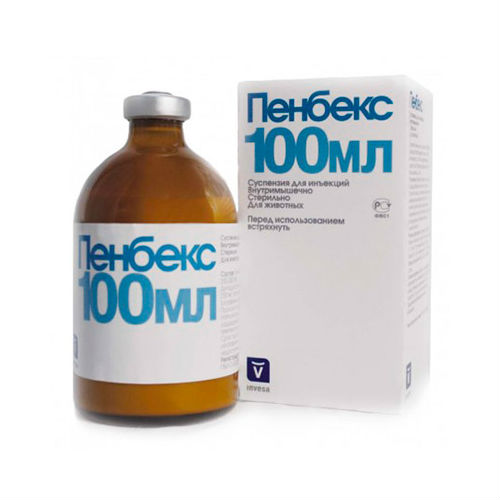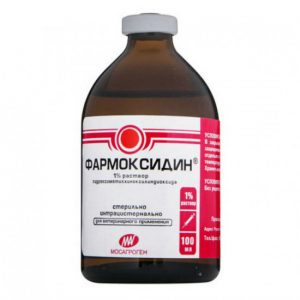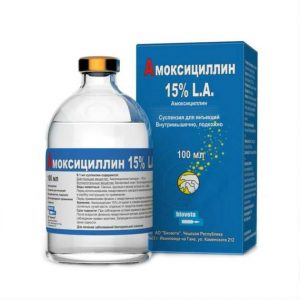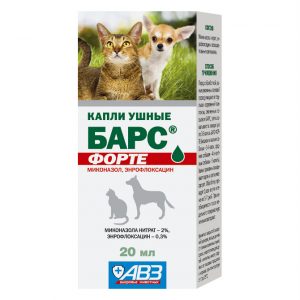Description
Pharmacological action of
Penbeks is a complex antibacterial drug containing two antibacterial components (penicillin G procaine and dihydrostreptomycin sulfate), glucocorticoid (betamethasone), antihistamine (chlorpheniramine maleatechlo) and place. The combination of procaine penicillin G with dihydrostreptomycin sulfate shows a synergistic antibacterial effect and expands the spectrum of antimicrobial activity of the drug. Penicillin G procaine belongs to the group of natural penicillins and has a high level of activity. The mechanism of action of penicillin G procaine is to block the synthesis enzymes of peptidoglycan, as the main component of the bacterial cell wall, leading to the death of the pathogen. The peculiarity of penicillin G procaine is slow absorption and prolonged action with intramuscular injection. The combination of procaine penicillin G with dihydrostreptomycin is active against gram-positive, gram-negative, most anaerobic bacteria and spirochetes, including Staphylococcus spp., Streptococcus spp., Corynebacterium spp., Listeria spp., Clostridium sippida. Spp. Strellium sipp. Pomona, Grippothyphosa, Icterohaemorrhagiae and others. Dihydrostreptomycin sulfate, an antibiotic from the aminoglycoside group, has a pronounced bactericidal effect on gram-negative microorganisms, including Escherichia coli, Salmonella spp., Pasteurella spp. and Klebsiella spp .. Antibiotics are excreted from the body mainly with urine and bile, in lactating animals – partially with milk. After a single intramuscular injection of penicillin G, procaine and dihydrostreptomycin sulfate are absorbed into the bloodstream and penetrate the affected tissues, reaching maximum concentrations within an hour, and remain in therapeutic concentrations for up to 24 hours. Betamethasone inhibits the activity of phospholipase, helps suppress inflammation at the site of the lesion. Chlorpheniramine maleate performs the function of an antihistamine that increases the protective processes in diseases of the respiratory tract, reduces edema and hypersecretion of mucus.
Indications
Cattle and small livestock, horses, pigs, dogs and cats: treatment of bacterial infections of the respiratory tract and genitourinary system, diseases of the musculoskeletal system, mastitis, colibacteriosis, salmonellosis, leptospirosis, postpartum and wound infections.
Contraindications
Contraindication to the use of Penbeks is the individual hypersensitivity of the animal to penicillin antibiotics and streptomycin. Do not use Penbeks in the last trimester of pregnancy, as this can lead to premature birth or abortion.
Special instructions
Slaughter of animals for meat, which used penbex, is allowed 30 days after the last injection. In the case of forced slaughter of animals of a predetermined period, the meat is used to feed fur animals or for the production of meat and bone meal. It is forbidden to use milk for food purposes during the treatment period and within 3 days after discontinuation of the drug. Such milk can be used to feed animals after heat treatment.
Composition
Penicillin G procaine, 200,000 IU / ml dihydrostreptomycin sulfate, 250 mg / ml betamethasone, 0.5 mg / ml chlorpheniramine maleate, 8 mg / ml procaine (hydrochloride), 15 mg / ml.
Dosage and administration
Before use, the vial of Penbeks is thoroughly shaken to obtain a homogeneous suspension and is administered to animals deeply intramuscularly once a day in the following doses: cattle, horses: 1 ml per 20 kg of live weight for 3 to 5 days . In case of severe disease, as well as calves and foals weighing up to 60 kg, a dose of 1 ml per 10 kg of live weight. Pigs and small cattle: 1 ml per 10 kg of live weight for 3 to 5 days. Dogs and cats: 1 ml per 10 kg of animal weight for 3 to 5 days. At the same time, the maximum amount of the drug for administration at one point should not exceed for cattle and horses – 20 ml of pigs – 10 ml of sheep and calves – 5 ml of piglets, cats and dogs – 2.5 ml.
Side effects
When using Penbeks in accordance with this instruction, side effects and complications, as a rule, are not noted. In some animals, a local reaction in the form of itching, erythema, edema, which spontaneously disappear within a few days without the use of therapeutic agents, is possible at the injection site.
dosage form
injection




